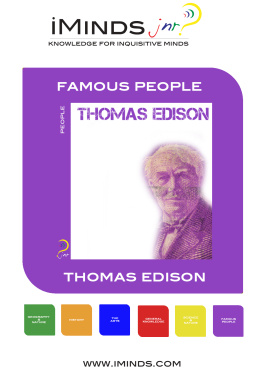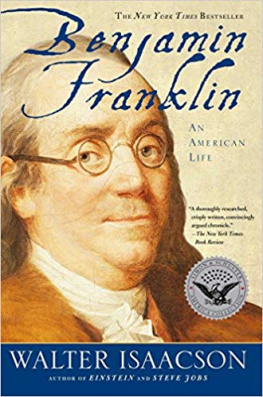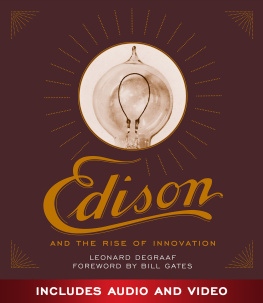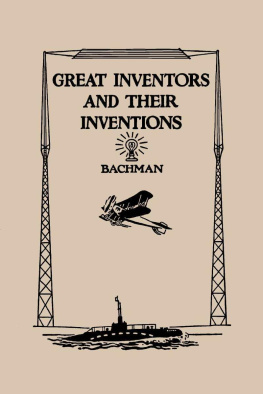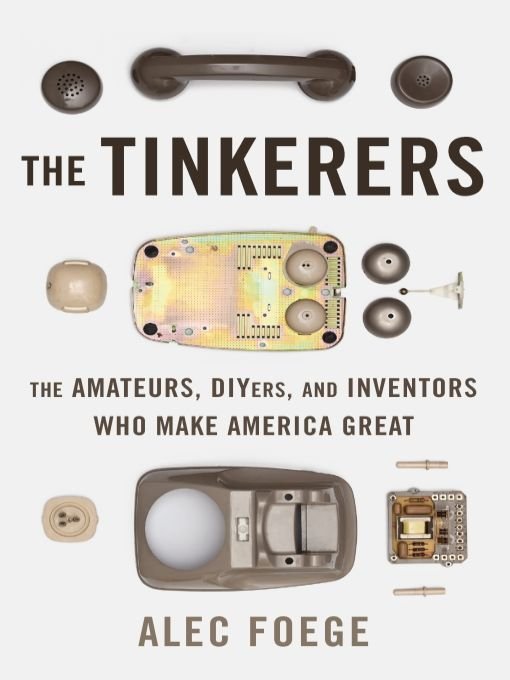Table of Contents
For my wife, Erica, who knows a thing or two about ingenuity
CHAPTER 1
WISING UP ABOUT A SMARTPHONE
A FEW YEARS AGO I ENGAGED my then two-month-old smartphone, a BlackBerry of some sort or another, in a very nontechnical road test: I sat on it. I only noticed the damage when one afternoon I reached to check my email. The small screen, usually jittering and scrolling with plenty of new messages, was suddenly a disconcerting Technicolor swirl with a huge black spot in the middle. A Rorschach test for the addled info junkie.
Suffering from the withdrawal symptoms familiar to anyone addicted to their phone, I drove in a mild panic to the nearest Verizon Wireless store, located in a small strip mall in a neighboring town.
After a short wait, I met with a sales representative seated in front of a computer screen. After asking for my vitals, he typed for a few seconds and waited. Then he typed, then he waited. Then he sighed.
You can get a new phone, he said.
Free of charge? I said, already knowing the answer.
No, he responded. At retail price.
How much is that? I asked.
Four hundred fifty dollars.
Could I get my current BlackBerry fixed? The rep shook his head sadly. They dont let us repair the phones in the store anymore, he said. That was my favorite part of the job. Now all I get to do is sell phones.
I felt his pain. Having grown up tinkering with Radio Shack electronic kits, I used to love taking things apartradios, tape players, anything I could get my hands on.
But in the last twenty-five years or so, the number of household devices we can easily tinker with has dwindled.
When I arrived home, I dug out my old BlackBerry. Two and a half years earlier, I had marveled at its slick design and state-of-the-art world phone capability. Now it just looked thick and clunky. And what would I do without its previously special ability to make calls from other countries without swapping out a computer chip? It didnt matter since virtually every phone can do that now.
I googled my model number to see if I could find a more affordable replacement. What I stumbled onto instead was a short video on YouTube. The video showed a pair of hands disassembling a BlackBerry and replacing the screen in a matter of minutes. A male voice, with an appealingly clipped English accent, guided me through each step.
I was hooked.
Through another Google search, I found an online retailer selling replacement screens for around $45, as well as a small smartphone-specific toolkit, including a tiny torque screwdriver and a little plastic tool for prying apart the BlackBerrys flimsy case. One FedEx delivery later, I had my phone disassembled and its parts neatly laid out on my desk. The screws came out easily; the case popped right off. Inside the phone, there were remarkably few parts. Following the YouTube video instructions carefully, I was able to unplug the broken screen, which was attached to the circuit board by a tapelike digital connector leading to a six-pin plug. I snapped in the new screen with little trouble, clicked the case back together, and tightened up the tiny screws with my tiny torque screwdriver.
Just ten minutes after starting the process, I powered it up. Good as new.
My tinkering journey ended at the point when I had a working phone again. But it certainly didnt have to. Having discovered through my own persistence that this modern-age bit of machinery wasnt quite as complicated as I had first thought, I might have been emboldened to make my own alterations to it.
Indeed, a quick online search revealed the fruits of a few intrepid BlackBerry tinkerers. One was titled How to Convert a BlackBerry Camera into a Webcam. Another demonstrated how to reverse-engineer a BlackBerry into a complete home automation control system.
Perhaps the best example of the smartphone-tinkering phenomenon is the remarkable case of George Hotz. Hotz came to fame in 2007 as a seventeen-year-old hacker of Apples iPhone.
Hotz, a T-Mobile subscriber, wanted to use the iPhone with his existing phone plan. But at the time, Apple had an exclusive deal with AT&T. Armed with nothing more than an eyeglass screwdriver, a guitar pick, and a soldering gun, he was able to erase his iPhones baseband processor, the computer chip that determined which phone carriers the device would operate with. On his own PC, he wrote a new string of code for his iPhone, allowing it to operate with any wireless network. Hotz staked his claim as the first person to unlock an iPhone. This accomplishment quickly brought him both fame and notoriety.
A few years later, in January 2010, Hotz succeeded in unlocking a Sony PlayStation 3 video-game console, which ignited a torrent of malfeasant hacking, culminating in a grand attack by a hacking group known as Anonymous that temporarily forced Sony to shut down its PS3 online gaming network.
I dont mention Hotzs story as evidence of hackers wreaking havoc, but rather to show the immediate power seemingly innocuous tinkering can have in contemporary society. Its important to note here that Hotz viewed himself as performing a valuable service to society in both of these cases.
And Hotzs impressive resume as a tinkerer backed up his claim. While still in high school, he invented a personal transportation device called the Neuropilot that users could drive around just by thinking about it. His senior year, he won a $15,000 science-fair prize for building a 3-D display. In May 2011, Sony extended an invitation to Hotz to visit its American headquarters, where he met with engineers working on the PS3 and explained how he broke into their system.
Where do we draw the line between tinkerers and hackers? What role does tinkering play in contemporary society? How did tinkerers traditionally influence American industry and society? Do we still have what it takes as a nation of tinkerers to excel in the global economy? This book explores the impact American tinkerers have had on the growth of the nation, and what role they may play in our future. It also explores some of the cutting-edge approaches being taken to address what some fear is the waning American tinkering spirit.
I believe the answers to these questions lie somewhere in the tension between corporate discipline and individual ingenuity. My experience with my BlackBerry is a perfect example. With the rapid decline of Research In Motionthe company that manufactured itsince I first purchased it, no doubt new ideas for repurposing these smartphones are cropping up every day.
But there is no guarantee that the best ideas will ever be realized, much less filter into the marketplace. Thats because too many average people are discouraged from ever opening these gadgets and examining how they work. Of course, large manufacturers would prefer that we simply toss them out and replace them with something shiny and new. Thats just the nature of capitalism.
But there are some fresh avenues emerging through which the United States as a leading economy and culture can improve the odds that the finest work of its most talented tinkerers finds its way into the commercial mainstream. This book explores some of those avenues.
The clerks sadness at not being able to fix things anymore, and my own sense of accomplishment at having avoided the throw out and replace syndrome, I think, were both symptomatic of something afoot in our culture: a return to an important tradition that has been to some extent a casualty of the remarkable efficiency with which we produce all manner of stuff. For many generations in the postindustrial age, puttering around with the mechanical devices that surrounded us was practically a rite of passage, and for many, a way of life. It tethered us to our machines and reaffirmed our notions of modern civilization. Deeply probing how things worked also provided children and adults alike with endless hours of enjoyment. It saved enterprising souls hundreds if not thousands of dollars on repair bills. It also often resulted in new and startling discoveries that sometimes led to fresh innovations.


